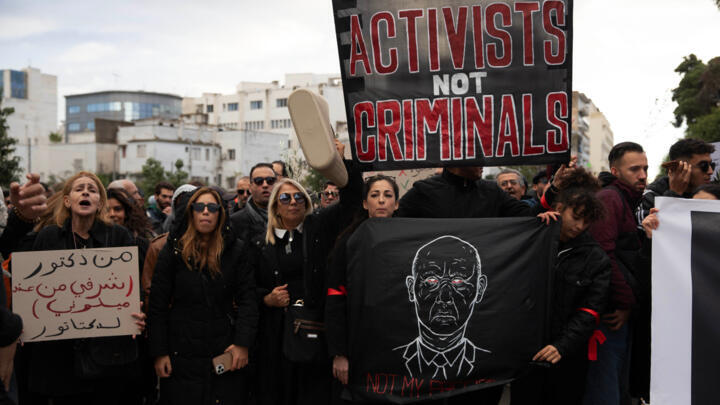
Forty people were charged with conspiring to overthrow the president. Twenty of them, having fled abroad, were sentenced in absentia.
Prominent opposition figures, including Ghazi Chaouachi, Issam Chebbi, Jawahar Ben Mbarek, and Ridha Belhaj, received 20-year sentences. Politician Noureddine Bhiri was sentenced to ten years, while businessman Kamel Ltaif received the maximum 45 years, and opposition politician Khyam Turki was handed 35 years. Nejib Chebbi, leader of the National Salvation Front, received 12 years, and Ayachi Hammami got five years.
Chaima Issa, a prominent opposition figure, was sentenced to 20 years, though she remains free, alongside Nejib Chebbi and Hammami, with authorities expected to enforce their arrests. Rights groups including Human Rights Watch and Amnesty International criticised the trial, calling it a further step in Saied’s crackdown on dissent since he seized extraordinary powers in 2021. Independent journalists, NGOs, and political activists have faced arrests, suspensions, and harassment under his rule.
“This is a judicial farce with clear intent to eliminate political opponents,” said Mokthar Jmai, a lawyer for the defendants.
Authorities allege the defendants, which include former officials and the former head of intelligence Kamel Guizani, attempted to destabilise the country and overthrow Saied. Opposition leaders reject the charges as fabricated and have accused the president of conducting a political purge aimed at consolidating power.
Since dissolving parliament in 2021 and ruling by decree, Saied has also removed dozens of judges and dissolved the independent Supreme Judicial Council, critics say, giving him near-total control over the judiciary. The opposition has vowed to unite despite the sentences, calling the crackdown a severe setback for democracy in Tunisia. In 2023, Saied labelled the accused “traitors and terrorists,” and accused any judges who might acquit them of complicity.
